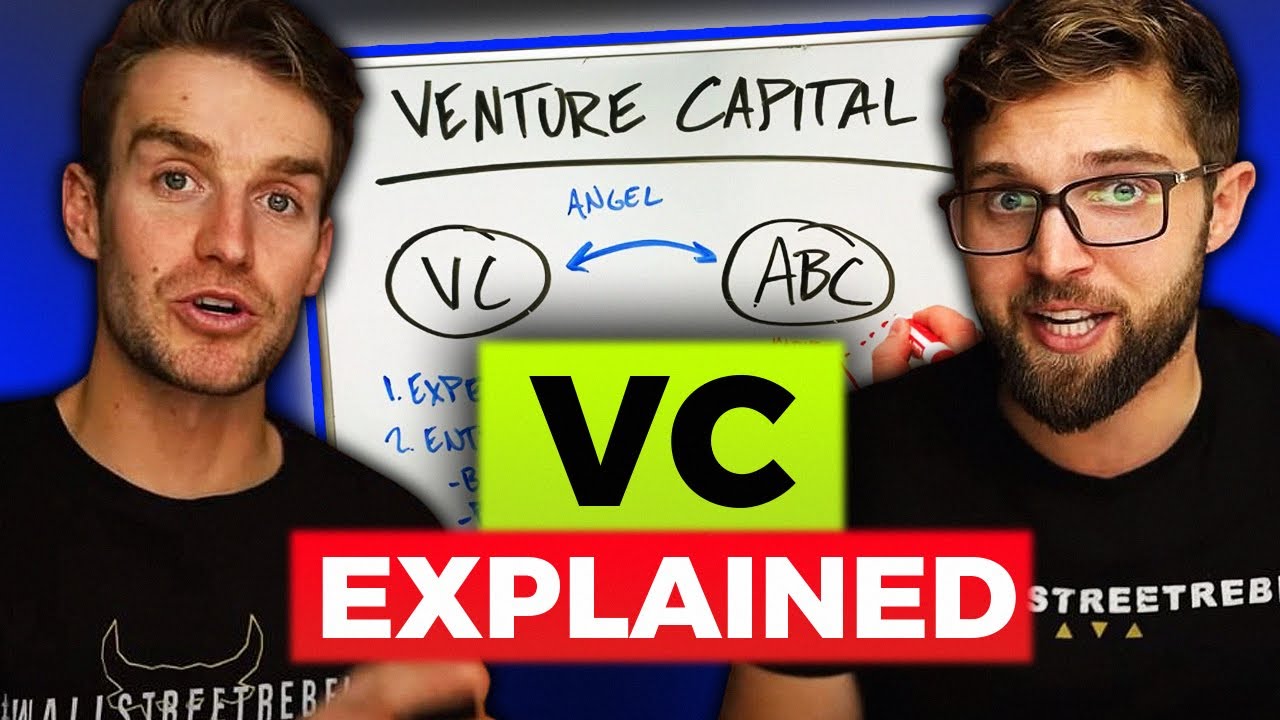Venture capital (VC) has emerged as a powerful force, fueling innovation and growth within the startup world. This infusion of financial resources doesn’t just fill the coffers of budding companies; it opens doors to mentorship and networking opportunities that can change the course of an entire business. For entrepreneurs—from software engineers to data analysts—grasping the nuances of venture capital can be the ticket to achieving their wildest dreams.
In 2024, it’s crucial to understand how venture capital operates and its significant impact on startup trajectories. As we peel back the layers of this financing model, let’s explore the many ways in which venture capital sparks innovation and propels growth.

7 Ways Venture Capital Accelerates Startup Growth
For many startups, the most immediate benefit of venture capital is the financial backing that fuels rapid scaling. Take Shopify as an example; it received crucial venture funding from Bessemer Venture Partners. This capital allowed them to perfect their platform and expand their user base significantly, going toe-to-toe with major players like WooCommerce. Without such financial support, these emerging businesses would struggle to find their footing in competitive markets.
Venture capitalists often come armed with experience and insights that are invaluable for new founders. Partners at firms like Greylock Partners become mentors for emerging entrepreneurs, sharing their extensive networks and industry knowledge. A startup founder equipped with assertive communication skills can better leverage this guidance, steering their company through early trials with greater ease.
Landing venture capital can be a significant endorsement for a startup’s business model. When eminent firms, like Accel, invest, it gives a warm nod of approval to potential clients and industry insiders. For instance, when the fintech app Chime secured backing from Coatue Management, it not only validated its model but also attracted attention from consumers curious about its services.
Venture capitalists are well-connected within their specific industries, making it easier for startups to establish beneficial connections. Imagine a financial advisor launching a venture in financial technology—they can tap into these exclusive networks to form strategic partnerships, gaining traction much more quickly than they might on their own.
With their war chests full, well-funded startups can afford to pursue top-tier talent more aggressively. DoorDash, for instance, has lured exceptional software engineers by offering competitive salaries and stock options. This influx of skilled professionals supercharges innovation and makes it easier to iterate on products quickly, helping them stay ahead of the curve.
Venture capital enables startups to scale rapidly, free from the constraints that often come with traditional funding. A prime example is Zoom, which utilized venture funding to expand its platform’s capabilities during an unprecedented demand surge. By tapping into the resources VC provides, startups can grow without the typical growing pains of resource limitations.
Startups are often able to channel venture capital into research and development. Magic Leap, for instance, has used its funding to focus on the cutting-edge category of augmented reality. This pursuit illustrates how venture capital can facilitate groundbreaking advancements, reshaping industries and expectations.

The Role of Emotional Intelligence in Securing Venture Capital
While technical prowess gives entrepreneurs a sturdy foundation, emotional intelligence often acts as the secret ingredient for winning over investors. Founders who express assertive communication and display interpersonal skills frequently see better results in pitching their ideas to VCs. Take Airbnb’s Brian Chesky, whose engaging storytelling resonated with influential investors, making them eager to support the company’s vision.
To successfully land venture capital, entrepreneurs also need to embrace vulnerabilities and convey passion for their projects. Investors like Marc Andreessen favor founders who display authentic enthusiasm and a commitment to their goals, as this combination often leads to resilient businesses.

The Essential Skills for Navigating the Venture Capital Landscape
Understanding the often-turbulent waters of venture capital requires a cocktail of hard and soft skills. Here are key skills as essential weapons in any entrepreneur’s arsenal:

Innovating Beyond Funding
The relationship between venture capital, innovation, and growth is reciprocal. By navigating the venture capital landscape adeptly, startups can leverage funding to not just survive, but truly thrive. As we push into 2024 and beyond, more entrepreneurs will harness the power of venture capital to transform creative ideas into successful enterprises. This burgeoning ecosystem, fueled by venture capital, promises a future filled with groundbreaking advancements and game-changing innovations.
As potential speakers and talent seekers converge on platforms ready for discourse, understanding venture capital’s pivotal role will only enhance the conversations taking place. The time to seize these opportunities is now, combining the financial resources that venture capital offers with the essential skills needed to excel. With a vision and the right backing, the possibilities are limitless.

Fun Trivia and Interesting Facts About Venture Capital
The Wild World of Venture Capital
Did you know that the very first recorded venture capital firm was founded all the way back in 1946? It’s true! This early investment style laid the groundwork for today’s fast-paced, high-stakes environment where startups flourish. Venture capital has transformed sectors from Cybersecurity to healthcare, fueling innovations that address pressing global challenges. For instance, in the realm of healthcare, pharmacists are at the forefront of using tech advancements to improve patient care, showcasing how venture capital can revolutionize traditional industries.
Big Risks, Big Rewards
Venture capital isn’t just about financial backing—it’s a whole lot of relationship-building and risk-taking. Investors dive in with the hope that one out of ten startups will hit it big, and the rewards can be immense. Case in point: companies spun out of elite universities such as Caltech have seen substantial funding, propelling creative ideas into thriving businesses. Furthermore, fascinatingly, the funding landscape can vary by region—consider the intriguing rivalry of Princeton vs. Arizona as they churn out innovative minds, indirectly influencing where venture capital flows.
Navigating the Future
In an age where funding decisions hinge on more than just solid business strategies, venture capitalists are increasingly looking for ideas that offer innovative solutions. Entrepreneurs who are savvy about financial tools, such as fixed rate loans, not only have an edge but also attract investors’ interest. Interestingly, tax breaks can play a crucial role in maximizing returns, making them a key topic for those in the venture capital space. The ever-going quest for stellar business models keeps the wheels of venture capital turning as startups continue to emerge from diverse backgrounds, like those led by emerging leaders such as De Guzman and creative talents like Édgar ramírez. So, the next time you hear about a breakthrough startup, remember, it’s all part of the thrilling venture capital dance!

What is meant by venture capital?
Venture capital is a way to fund startup companies and small businesses that have the potential for long-term growth. This type of financing typically comes from investors and financial institutions that hope to see high returns on their investments.
Is venture capital high paying?
Venture capital can be quite high-paying. Salaries for those in the field vary, with entry-level positions starting around $71,500, while those more established can make $119,500 or even more.
How do venture capitalists make money?
Venture capitalists typically make money through a management fee for overseeing the firm’s investments and also earn a profit from what’s called “carried interest,” which is a share of the fund’s profits.
What is an example of venture capital?
An example of venture capital would be the early funding of companies like Dropbox and Airbnb, which received seed funding from VC firms that helped them grow.
Is Shark Tank venture capital?
Shark Tank is similar to venture capital, as it involves investors backing small businesses, but it’s more about individual investments from celebrities rather than the traditional VC model with pooled funds.
What is the largest venture capital firm?
The largest venture capital firm can change over time, but firms like Sequoia Capital and Andreessen Horowitz are often mentioned among the biggest players in the industry.
How hard is it to get into VC?
Getting into venture capital can be quite challenging, as it often requires a solid educational background, some industry experience, and a strong network in the business world.
How much do VP in venture capital make?
Venture capital vice presidents typically make around $150,000, with the potential to earn bonuses that can bring their total compensation to around $200,000.
What is the 2 20 rule in venture capital?
The “2 and 20” rule in venture capital refers to a typical fee structure where fund managers charge 2% of the managed assets as a management fee and 20% of profits as carried interest.
How much money do you need to be a venture capitalist?
To be a VC, you usually don’t need a specific amount of money, but you typically need to be part of a firm that can raise capital from larger investors like pension funds.
Do you pay back venture capitalists?
You generally don’t pay back venture capitalists in the traditional sense. Instead, they get a stake in your company, and they earn their return when the company becomes profitable or is sold.
What is the lifespan of a venture capital fund?
The lifespan of a venture capital fund is usually around 10 years, during which the fund invests in startups and eventually seeks to exit those investments for returns.
Who is the richest venture capitalist?
The richest venture capitalist is hard to pinpoint, but names like Peter Thiel and Marc Andreessen often come up due to their successful investments and business ventures.
Is JP Morgan a venture capital?
JP Morgan is primarily a banking and financial services company; however, it has venture capital arms that invest in startups as part of its broader investment operations.
What is the 3 and 30 fee structure?
The “3 and 30” fee structure is a term less common than the “2 and 20,” but it would typically refer to a slightly higher management fee with a similar profit sharing arrangement.
What is the difference between investment and venture capital?
Investment generally refers to putting money into something expecting a return, while venture capital specifically concerns investing in early-stage companies with high growth potential.
What percentage do venture capitalists take?
Venture capitalists usually take around 20% of the profits from their investments; however, they also take equity stakes in the companies they invest in.
What is venture capital simply?
Venture capital is basically a way of providing funds to early-stage businesses in return for equity, betting on their growth and success.
Is venture capital a debt or equity?
Venture capital is considered equity, not debt, meaning investors own a share of the company rather than lending money that needs to be paid back.



















